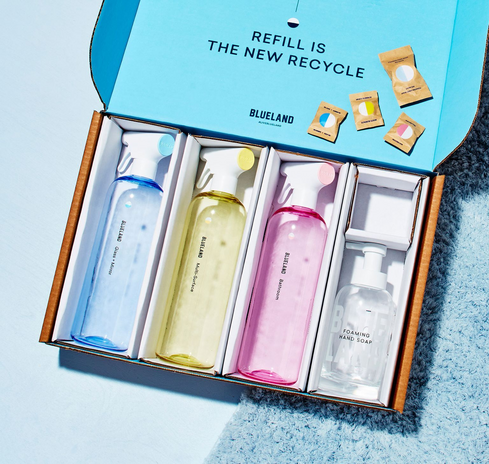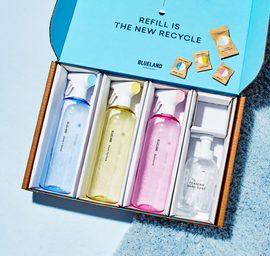Being a student is difficult at times, from having to keep on top of all the necessary chores, alongside meeting academic deadlines. This often means that it’s easy to forget about small sustainable habits that you can include into your daily life with little to no extra effort after their initial implementation. From one busy student to another, here are some easy ideas to lower your carbon footprint in your university house!
1. Recycling bin in the bathroom – this one is my favourite because it’s so effective. Who wants to go through the communal bathroom bin to get the finished toilet rolls and recycle them? No one! My dad would say take them down as soon as you’ve finished one, but in reality (,especially in a university house), no one does that. It’s as easy as picking up a small cardboard box and placing it in your bathroom. I wrote ‘recycling’ on ours in cute writing to make it more fun. The cheapest idea!
2. Recycling bin in the kitchen – I was shocked when I visited my home friends in various universities, and found they don’t have a recycling bin. Different areas have different requirements and pick ups, but my advice would be to search up your local recycling information and try your best to use a recycling bin, even if it’s a bin bag in your kitchen and you empty that into your big recycling bin outside – student living is tough on the pennies!
3. Food waste bin – this is one I yet haven’t introduced in my university house, as it looks gross and dirty from the previous tenants. But now the weather is getting nicer, I’m mustering up the courage to clean it and get it in use for the rest of the semester. An incentive to get you to use one is that it will stop your main bin smelling so it’s a win!
4. Hand soap in bathrooms – this is more of a money saving hack. I seem to accumulate a lot of soaps from Christmas gifts and taking the hand soaps from hotels, and then never using them. Your uni house bathroom is the perfect place to use them, it gets them used up faster, and no one needs to buy soaps! Also, no plastic packaging waste!
5. Reusing the washing up liquid bottles – go to your local sustainable shop where there’s refill stations. In Nottingham, unfortunately both the student union sustainable shop and the city centre shop, are more expensive than buying new from the local Sainsburyse etc. However, for me, I get a nice walk, it supports local businesses, and I receive better quality eco-friendly products, so personally I don’t mind spending 50p extra, but that’s me!
6. Reusing cleaning product bottles – this is a new trick that I’ve found really helpful! There is a company that sells sachets of cleaning products in my local sustainable shop Zero Waste, so all you have to do is buy the sachet of whatever you need e.g. kitchen cleaner/ bathroom cleaner, then pop it in your bag, and at home place the sachet in the bottle with water and let it dissolve! As a student who doesn’t have a car and doesn’t want back problems from carrying heavy shopping bags around the city, this is perfect! The company is called Iron & Velvet. Alternatively, you could order online!
7. Shop second-hand – Lastly, if you need new furniture for your uni room or house, such as a dining table, my advice would be to always check on Facebook marketplace, local charity shops or Gumtree first. This will most likely be your cheapest option too!


